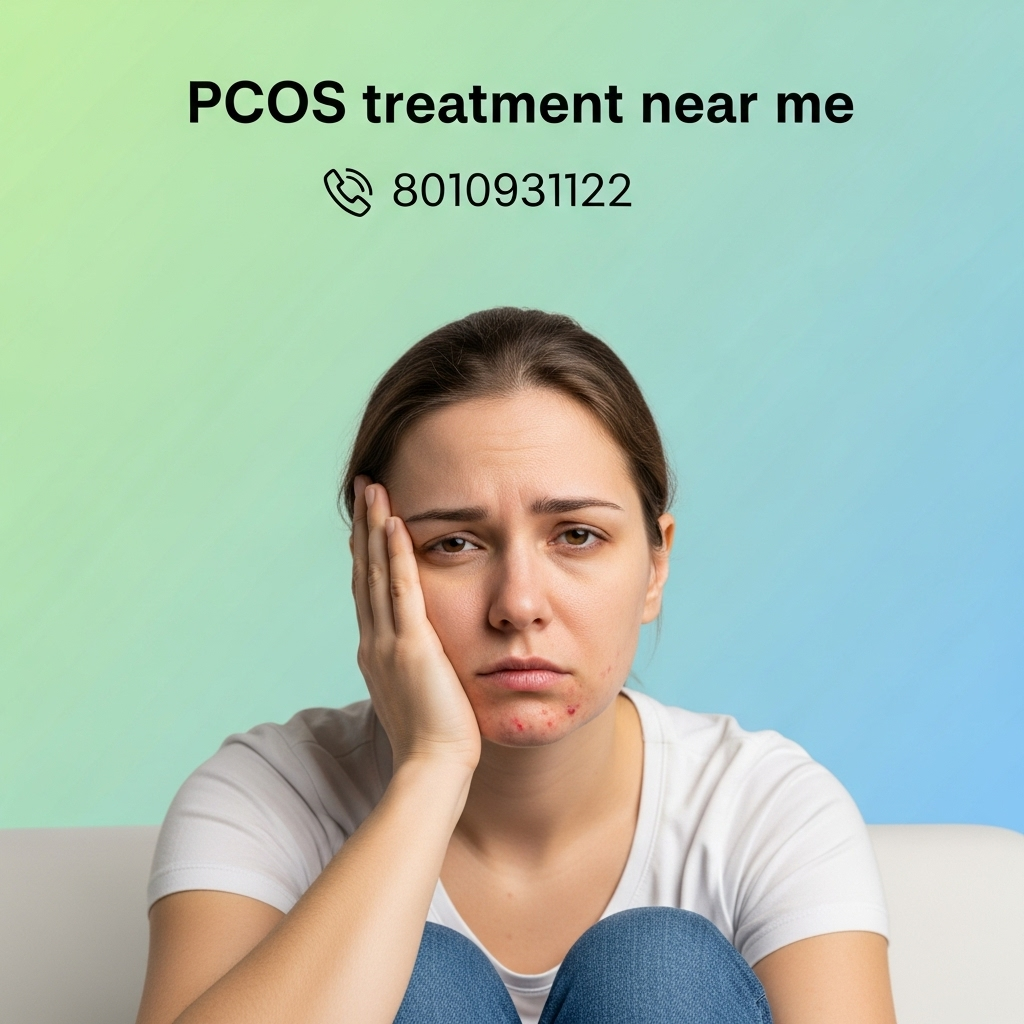Women across the world often face reproductive health issues, and two of the most common ones are PCOD (Polycystic Ovarian Disease) and PCOS (Polycystic Ovary Syndrome). While both conditions affect the ovaries and hormonal balance, they are not exactly the same. Many women wonder: “PCOD or PCOS, which is more dangerous?” The answer lies in understanding the differences, symptoms, complications, and treatment approaches.
In this article, we’ll explain the difference between PCOD and PCOS, highlight which is more concerning, and also guide you on how to find the best PCOS doctor near me for proper treatment.
What is PCOD?
PCOD, or Polycystic Ovarian Disease, is a condition in which the ovaries release many immature eggs, which later turn into cysts.
- Cause: Primarily related to lifestyle factors like poor diet, stress, and hormonal imbalance.
- Symptoms: Irregular periods, weight gain, acne, and difficulty in conceiving.
- Impact: PCOD usually doesn’t disturb fertility severely, and with lifestyle changes, many women manage it effectively.

PCOD vs PCOS: Key Differences
| Aspect | PCOD | PCOS |
|---|---|---|
| Nature | Ovarian disorder | Hormonal & metabolic syndrome |
| Severity | Mild, manageable | More complex, long-term health risks |
| Fertility | Less affected | Higher chances of infertility |
| Treatment | Lifestyle modification | Requires medical intervention + lifestyle changes |
PCOD or PCOS: Which is More Dangerous?
When comparing the two, PCOS is considered more dangerous than PCOD. While PCOD can often be managed with diet, exercise, and stress control, PCOS has wider implications:
- It can lead to infertility.
- Increases risk of diabetes, hypertension, and heart disease.
- Affects mental health due to hormonal imbalance.
This does not mean PCOD should be ignored, but PCOS requires stricter monitoring and expert medical care.
Complications Linked to PCOS
- Infertility and difficulty conceiving.
- Type 2 diabetes and insulin resistance.
- High cholesterol and risk of cardiovascular disease.
- Endometrial cancer risk in some cases.
- Anxiety and depression due to hormonal imbalance.
When to Consult a Doctor?
If you experience:
- Irregular or missed periods,
- Unexplained weight gain,
- Excess facial or body hair,
- Difficulty in conceiving,
then it is essential to consult a gynecologist or endocrinologist at the earliest.
How to Find the Best PCOS Doctor Near Me
Searching for the best PCOS doctor near me is crucial for timely treatment. Here are some tips:
- Check Specialization: Choose a gynecologist or endocrinologist experienced in treating PCOS.
- Look for Holistic Approach: The best doctors provide a mix of medication, lifestyle, and dietary guidance.
- Patient Reviews: Online reviews can give insights into the doctor’s expertise and patient care.
- Accessibility: Prefer a clinic or hospital close to your location for regular follow-ups.
- Personalized Care: Since PCOS varies from woman to woman, look for doctors who tailor treatments individually.
Natural Management Tips for PCOD and PCOS
- Balanced Diet: Include whole grains, fresh vegetables, lean proteins, and avoid processed sugar.
- Regular Exercise: Yoga, walking, and strength training help manage insulin resistance.
- Stress Management: Meditation and mindfulness reduce hormonal imbalances.
- Adequate Sleep: Proper rest supports hormone regulation.
Medical Treatment Options
Doctors may suggest:
- Hormonal Therapy: Birth control pills to regulate periods.
- Fertility Treatments: Medications like Clomiphene for those trying to conceive.
- Insulin-Sensitizing Drugs: Metformin to control insulin resistance.
- Surgical Options: Laparoscopic ovarian drilling in severe cases.
Conclusion
While both PCOD and PCOS affect women’s reproductive health, PCOS is more dangerous due to its long-term health risks. It’s essential not to ignore symptoms and seek expert guidance at the right time. Lifestyle modifications, along with medical treatment, can significantly improve the condition.
If you are searching for the best PCOS doctor near me, make sure to choose an experienced specialist who provides comprehensive and personalized care.
FAQs
Q1: Can PCOD turn into PCOS?
No, PCOD and PCOS are different conditions, though they share similarities. PCOD is less severe, while PCOS is a metabolic disorder.
Q2: Can women with PCOS get pregnant naturally?
Yes, but it may take longer and often requires medical support. Treatments can improve fertility chances.
Q3: Is weight gain common in both PCOD and PCOS?
Yes, weight gain and obesity are common, especially in PCOS due to insulin resistance.
Q4: What foods should be avoided in PCOS?
Refined carbs, processed foods, sugary drinks, and fried foods should be limited.
Q5: Is PCOS curable?
PCOS cannot be completely cured, but with treatment and lifestyle changes, symptoms can be effectively managed.


